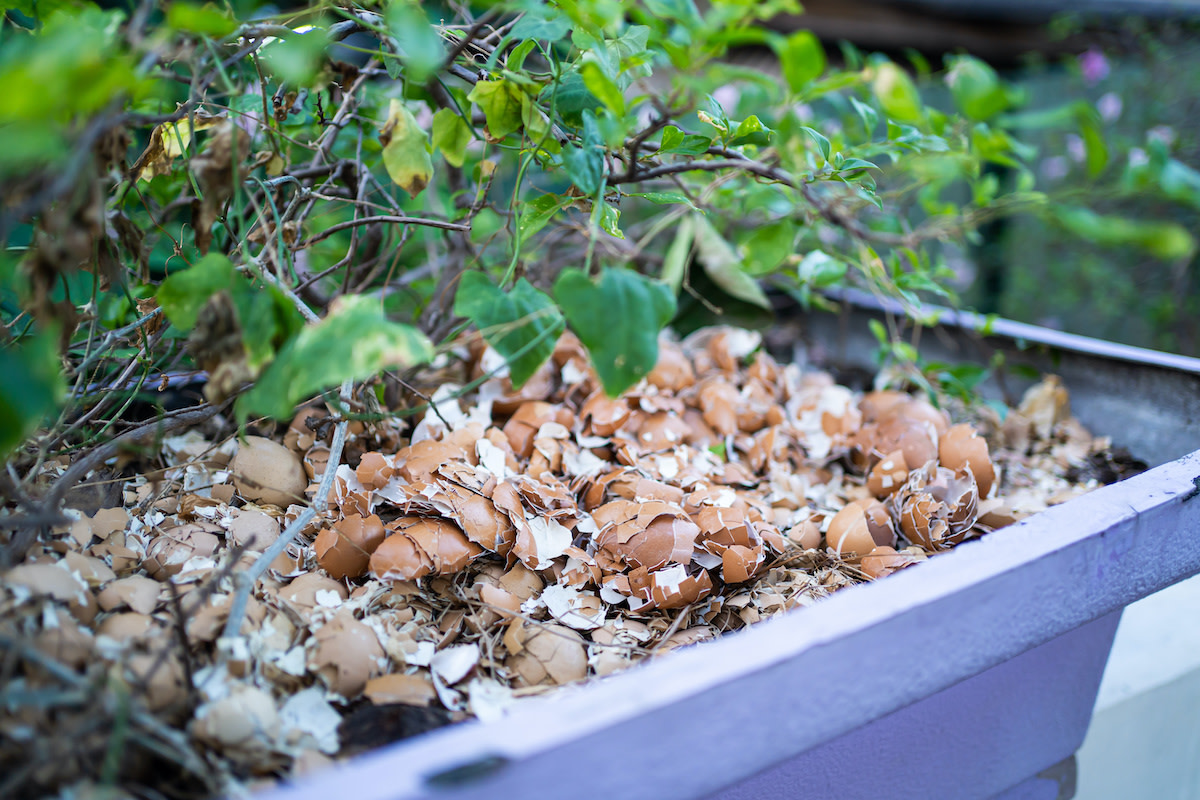Egg Shell Fertilizer: 4 Benefits of Eggshell Fertilizer
Written by MasterClass
Last updated: Dec 9, 2021 • 3 min read
Egg shell fertilizer provides important nutrients to plants and vegetables. Learn easy DIY tips for making your own eggshell fertilizer.
Learn From the Best
What Is Eggshell Fertilizer?
Egg shell fertilizer, or eggshell fertilizer, is made from crushed eggshells, which are high in calcium carbonate, a crucial mineral for strengthening plants’ cell walls. The shells also contain other minerals that help plants grow, including potassium, phosphorus, and magnesium. Eggshells are, therefore, an effective and inexpensive fertilizer for outdoor garden soil and houseplants.
4 Benefits of Eggshell Fertilizer
Eggshells can benefit plants in the following ways:
- 1. Eggshells lower soil acidity. Many types of plants prefer low acidity in the soil to absorb nutrients and ward off toxic elements like aluminum. The calcium carbonate in eggshells lowers soil pH levels, making the soil more alkaline than acidic.
- 2. Eggshells discourage blossom-end rot. Certain plants, like tomato plants, will develop black spots on the ends of their fruit due to calcium deficiency. Adding calcium from eggshell fertilizer can help fruiting plants thrive and avoid blossom-end rot.
- 3. Eggshells control pests. The lingering smell of eggs inside the shell wards off deer, while the sharp edges of dry, crushed shells are hazardous for the soft bodies of snails and slugs.
- 4. Eggshells encourage root growth. The calcium carbonate in eggshells helps to strengthen a plant’s roots so it can grow faster and stronger. Simply crush clean, dry eggshells into a fine powder. Add the powdered eggshells to boiling water, then cover and store the mixture for one week, uncovering it only once daily to stir it. After seven days, pour the mixture directly into the soil above the plant’s roots.
Does Eggshell Fertilizer Work for All Plants?
Eggshell fertilizer will benefit many plants, although not all plants. Eggshell fertilizer can help fruit-bearing species and vegetables, such as apples, strawberries, lettuce, cucumbers, and eggplants. It will also boost certain flowers (perennials and annuals), such as roses and chrysanthemums. Eggshell fertilizer is good for succulents, but it lacks nitrogen, which some succulents might require. On the other hand, the extra calcium in eggshell fertilizer will harm to certain outdoor and indoor plants. It can cause disease in geraniums, violets, azaleas, and other acid-loving plants. Avoid using eggshell fertilizer on cabbage, beans, and spinach.
3 Ways to Make Eggshell Fertilizer
You can make eggshell fertilizer using a few different methods.
- 1. Crush the eggshells. Wash and rinse eggshells and let them dry. Crush the eggshells into a fine powder using a mortar and pestle, rolling pin, or food processor. Be sure to wear a mask while crushing the shells to avoid breathing in any eggshell dust. Stir the eggshell powder into your flower bed, indoor plant’s potting mix, or vegetable garden’s soil.
- 2. Grind the eggshells. In the absence of a food processor or manual tools, you can use a coffee grinder to turn eggshells into powder. Add the ground eggshells to your compost bin to make mulch or pour them directly into your planting holes. Many master gardeners add coffee grounds, which are rich in nitrogen and potassium, to eggshell fertilizer for even more of a nutrient boost.
- 3. Steep the eggshells. You can use eggshells to make a fertilizer tea that will add liquid calcium to your garden. Boil a gallon of water and add ten to twenty clean, dry eggshells. Let the shells sit in the water overnight, then strain them out. Pour two cups of liquid onto each plant. Repeat the eggshell tea process every two weeks.
Learn More
Grow your own garden with Ron Finley, the self-described "Gangster Gardener." Get the MasterClass Annual Membership and learn how to cultivate fresh herbs and vegetables, keep your house plants alive, and use compost to make your community—and the world—a better place.
